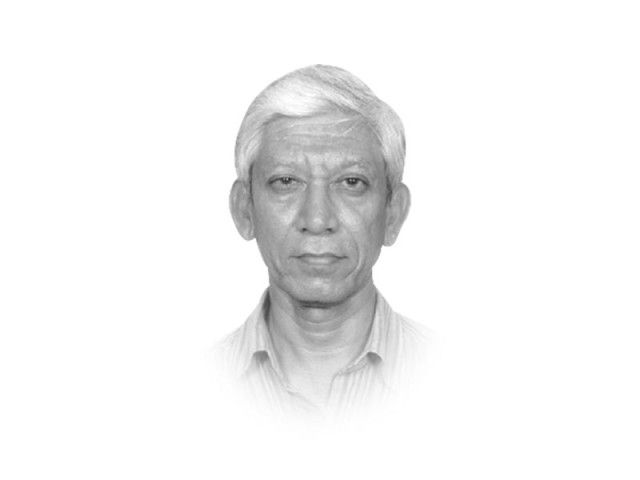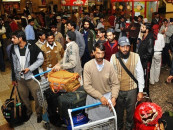The making of the modern maulvi — I
Since prophets quoted in Holy Quran declined economic benefit for the divine task, so too must preachers today.

Syed Naseer Shah, a writer of an exceptional merit, born and based in Mianwali, in his classic 1962 essay titled Kya khidmat-e-deen ka muawza laina ja’iz hai?’ (‘Is it allowed to get paid in exchange of a religious service?’) lists in sufficient detail verses from the Holy Quran, clear and generally accepted Hadiths and the opinions of the Islamic legal experts through of the early centuries to show how they were unanimous in condemning, disallowing and declaring haram — absolutely forbidden — and said it was a grave sin to demand or accept any economic reward in exchange of teaching and explaining religious texts, leading and facilitating acts of worship and performing religious rites. This was done with an unambiguous purpose of discouraging people from making khidmat-e-deen their bread and butter.
The logic was that since all the major prophets quoted in the Holy Quran have shown their hatred for the idea of receiving economic benefit for performing the divine task of teaching religion to people, those carrying on with their task in the later period must also refrain from making it a source of economic benefit. Besides, when a member of a Muslim community assists another member in performing an act of worship, he is actually performing this religious duty for his own self, and not for the other person. Therefore, it is absurd to demand or accept any material, worldly reward for it.
However, according to Shah, by the end of the eighth century of the Hijra calendar (roughly corresponding to the fifteenth century of the Gregorian calendar) not only had getting paid in exchange of khidmat-e-deen been declared halal — allowed — by those who monopolised the interpreting of religious texts, but minimum wages for teaching the Quran had been fixed in cash and kind — 35 dirhams and a measure of halwa — and, what’s more, refusing to pay such wages had been made a crime punishable by imprisonment.
In this newspaper space, in the coming weeks, we intend to try and understand what form the profession of maulvi took in South Asia during the later part of the colonial era — from mid-nineteenth century onwards — and how it influenced the social and political life of the Muslim communities in the subcontinent in the decades that followed. This study seems meaningful in that this particular era could be seen as the beginning of a fundamental transformation of the role of religion in public life and that the new form of the profession was essentially shaped by the technologies of modern times — new means of communication, dissemination of knowledge and information, printing, public instruction and so on — along with specific skills and professions that emerged as a result of this huge change in technology and sociology. It is vital to see in proper perspective the part it has been playing in the politics of identity in our region.
However, before coming to this period, it would help to see what it was that the modern era replaced or transformed, meaning what the form, content and ways of dissemination of knowledge were before the introduction and prevalence of the new technologies of communication, which happened, in the event, during and under the colonial rule.
To quote from the 1978 paper titled “The Art of Memory: Islamic Education and Its Social Reproduction” by Dale F Eickelman, then professor of anthropology and human relations at New York University (and currently at Dartmouth College): “Islamic education… was in some ways intermediate between oral and written systems of transmission of knowledge. Its key treatises existed in written form but were conveyed orally, to be written down and memorised by students.” He goes on to quote (and critique) Marshall Hodgson’s statement that education was “commonly conceived as the teaching of fixed and memorisable statements and formulas which could be learned without any process of thinking as such”.
According to Professor Eickelman, the “accurate memorisation” of the Holy Quran “in one or more of the seven conventional recitational forms”, and of the key religious texts, formed “the starting point for the mastery of religious sciences”. The generally accepted assumption was that “religious knowledge is fixed and knowable and that it is known by men of learning”. Furthermore: “The religious sciences… throughout the Islamic world are thought to be transmitted through a quasi-genealogical chain of authority which descends from master or teacher (shaykh) to student (talib) to insure that the knowledge of earlier generations is passed on intact. Knowledge of crafts is passed from master to apprentice in an analogous fashion, with any knowledge or skill acquired in a manner independent from such a tradition regarded as suspect.”
The system of religious education in South Asia followed the same general pattern as outlined above. Since the common means of transport were bullock carts and horses (and also boats where there were rivers), geographical mobility was highly limited. People of suitably high social status — based on their being born in the correct caste — travelled in search of knowledge in much the same way as other high-born individuals set out to kill, plunder, conquer, occupy and rule. Most of the common people, tied to the agricultural land, had no business travelling to other places, except mass-migrating in times of drought, famine or other such calamities. They were tied to their ancestral means of earning their living as firmly as they were to the land. The activity of acquiring and imparting religious knowledge was therefore something out of their world.
Published in The Express Tribune, August 20th, 2011.















COMMENTS
Comments are moderated and generally will be posted if they are on-topic and not abusive.
For more information, please see our Comments FAQ